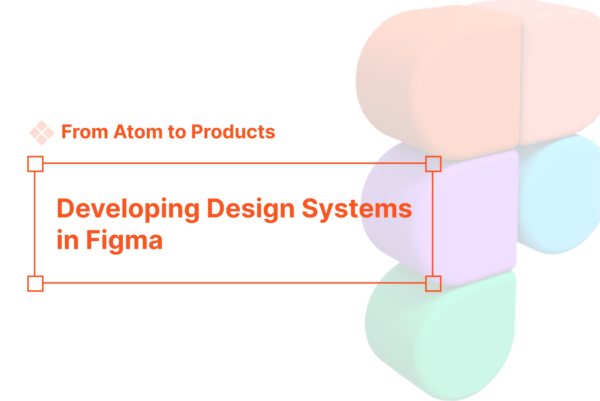
Bochum, Germany
Smart & Sustainable Buildings
When:
28 July - 08 August 2025
Credits:
3 EC
Read more
Engineering
When:
25 July - 10 September 2022
School:
Institution:
University of Bergamo (UniBg) and Riga Technical University (RTU)
City:
Country:
Language:
English
Credits:
9 EC
Fee:
100 EUR

“Nonlinear life” is the summer school with an interdisciplinary approach on engineering themes related to human health, promoted by the Riga Technical University in collaboration with the University of Bergamo. This year the summer school reaches its 5th Edition: the first two took place in Riga, Latvia and the third in Trieste, Italy, both with successful participation of students from all over Europe. During the Covid-19 pandemic the 4th Edition was carried out in virtual (online) mode, with more than 70 participants from 17 different countries in Europe, Asia and South America.
The 5th Edition is again structured as a 1-week virtual school but with the unique option to add a 1-week in presence internship at the University of Bergamo or/and at Riga Technical University. A certificate of attendance and 3 ECTS (European Credit Transfer System) credits will be awarded upon successful completion of each module of the program (3 ECTS credits for the virtual school only, 6 ECTS credits for the virtual school + one internship, 9 ECTS credits for the virtual school + two internships).
The calendar of the summer school is as follows:
Virtual school (online): 25-29 July, 2022
Internship at the University of Bergamo: 28 August-03 September 2022
(Check-in on 28 August; Internship on 29 August-02 September; Check-out on 03 September)
Internship at Riga Technical University: 04-10 September, 2022
(Check-in on 04 September; Internship on 05-09 September; Check-out on 10 September)
The virtual school, delivered both by academics and practitioners in the health technology industry, will focus on two macro-themes:
New electronic devices for health, wearable sensors and IoT systems for diagnosis and care
(Coordinator: Prof. Gianluca Traversi, University of Bergamo)
New digital solutions for 3D acquisition, modelling and simulation of the human body to improve patient’s assessment and rehabilitation
(Coordinator: Prof. Daniele Regazzoni, University of Bergamo)
Topics and Faculty - https://en.unibg.it/sites/sten/files/nll_2022_-_topics_and_faculty_7_april_2022.pdf
The internship will give participants the unique opportunity to apply the contents of the virtual school through the development of a supervised group project in the university research labs. The internships are residential and will be enriched by a social program and didactic visits. At each destination, participants will carry out one internship, which may be selected in the application among the following:
At the University of Bergamo, Engineering Departments Labs (20 available places in total):
Characterization of wearable sensors developed for monitoring environmental and physiological parameters
(Supervisors: Prof. Gianluca Traversi, Dr. Elisa Riceputi)
Characterization of stimuli-responsive materials for healthcare
(Supervisors: Prof. Gianluca Traversi, Prof. Giuseppe Rosace)
Use of Motion Capture devices both marker-based and marker-less to track body movement. Elaboration and analyses of the data gathered to assess actor’s performance while doing specific movements and/or evaluation of the error of acquisition
(Supervisors: Prof. Daniele Regazzoni, Dr. Andrea Vitali)
At Riga Technical University, Faculty of Mechanical Engineering Labs (20 available places in total):
Nanodosimetry: research to identify application of nanobjects for radiation dosimetry
(Supervisor: Prof. Yuri Dekhtyar)
Near-threshold electron spectroscopy application to characterize electrical charge of the nanoobject surface
(Supervisor: Prof. Yuri Dekhtyar)
Machine Learning for medical/health applications
(Supervisor: Chief Researcher Katrina Boločko)
Textile sensors for human motion detection
(Supervisor: Prof. Alexei Katashev)
Biochips for cell microfluidic
(Supervisor: Chief Researcher Uldis Berzins)
University of Bergamo (Italy) and Riga Technical University (Latvia)
The summer school is open to Bachelor, Master and PhD students enrolled in programs related to health, engineering, electronics, information technologies. A good command of the English language is essential. Applicants to the optional internship/s should preferably have at least two years of completed bachelor studies, and will be selected based on their curriculum and motivation.
Fee
100 EUR, Virtual School = 100 EUR. [Application Deadline - 15 July, 2022]
Fee
400 EUR, Virtual School + Internship in Bergamo = 250 EUR. [Application Deadline - 01 July, 2022] Virtual School + Internship in Riga = 250 EUR [Application Deadline - 01 July, 2022] Virtual School + Internship in Bergamo + Internship in Riga = 400 EUR [Application Deadline - 01 July, 2022] Applicants will be notified on the acceptance to the summer school within a week of the application date and shall proceed with the payment of the participation fee by 20 July, 2022. The payment account shall be provided after the acceptance, while no payment is required at the time of application. Please, contact nonlinearlife@unibg.it for any further information request.
When:
25 July - 10 September 2022
School:
Institution:
University of Bergamo (UniBg) and Riga Technical University (RTU)
Language:
English
Credits:
9 EC

Bochum, Germany
When:
28 July - 08 August 2025
Credits:
3 EC
Read more

Tallinn, Estonia
When:
14 July - 01 August 2025
Credits:
3 EC
Read more

Wels, Austria
When:
08 July - 23 July 2025
Credits:
4 EC
Read more